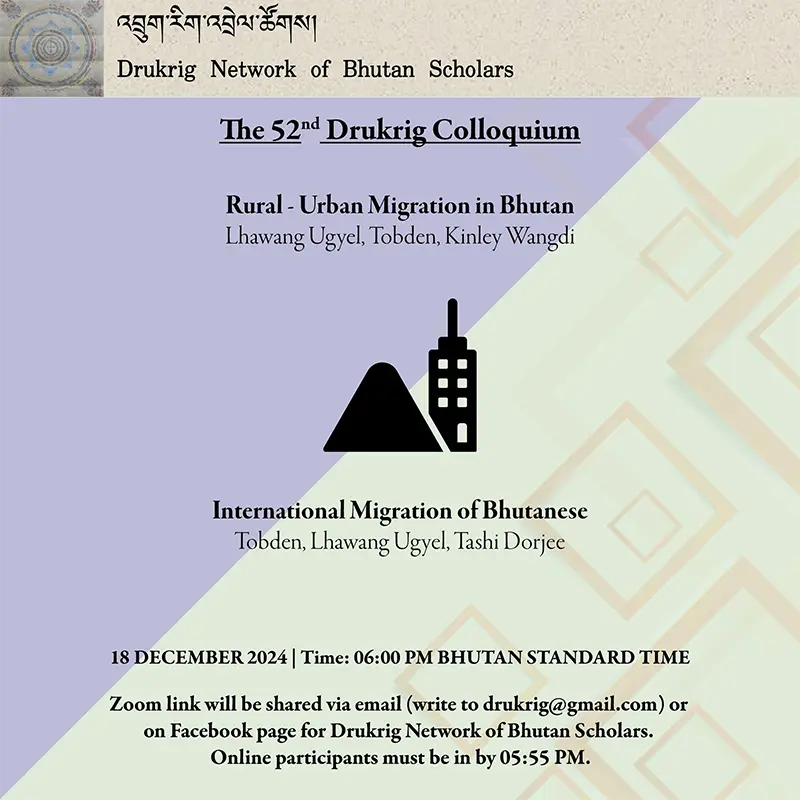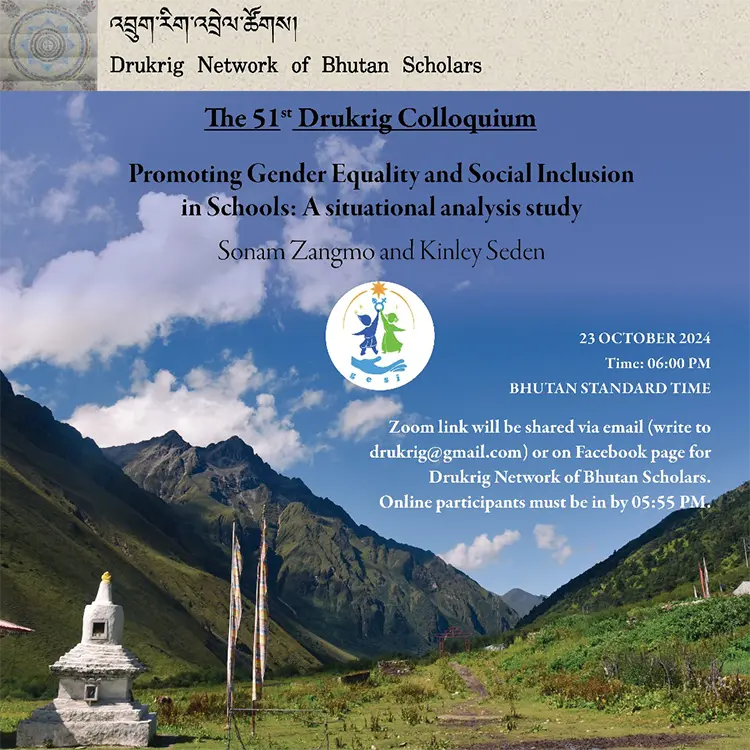Desi Tenzin Rabgye: Ruler and statesman of 17th century Bhutan & gNas as mnemonics: The social practice of Pema Lingpa’s sacred Korphu, Trongsa
This session delves into two significant aspects of Bhutan's history and spiritual practices. The first part focuses on Desi Tenzin Rabgye, the influential ruler and statesman of 17th century Bhutan, who played a pivotal role in consolidating Bhutan’s political and religious landscape. As a leader, Desi Tenzin Rabgye is remembered for his contributions to the strengthening of Bhutanese institutions, his promotion of Buddhism, and his strategic governance during a critical period in the nation’s history. The second part explores the concept of gNas, a practice in Bhutanese culture, particularly through the lens of Pema Lingpa's sacred Korphu in Trongsa. The session highlights how gNas functions as a mnemonic tool, preserving sacred teachings and practices, and reflects on its cultural and spiritual importance in maintaining Bhutan's religious heritage. Together, these discussions offer insights into Bhutan's historical and spiritual evolution, shedding light on both governance and religious practices that continue to influence the nation today.




